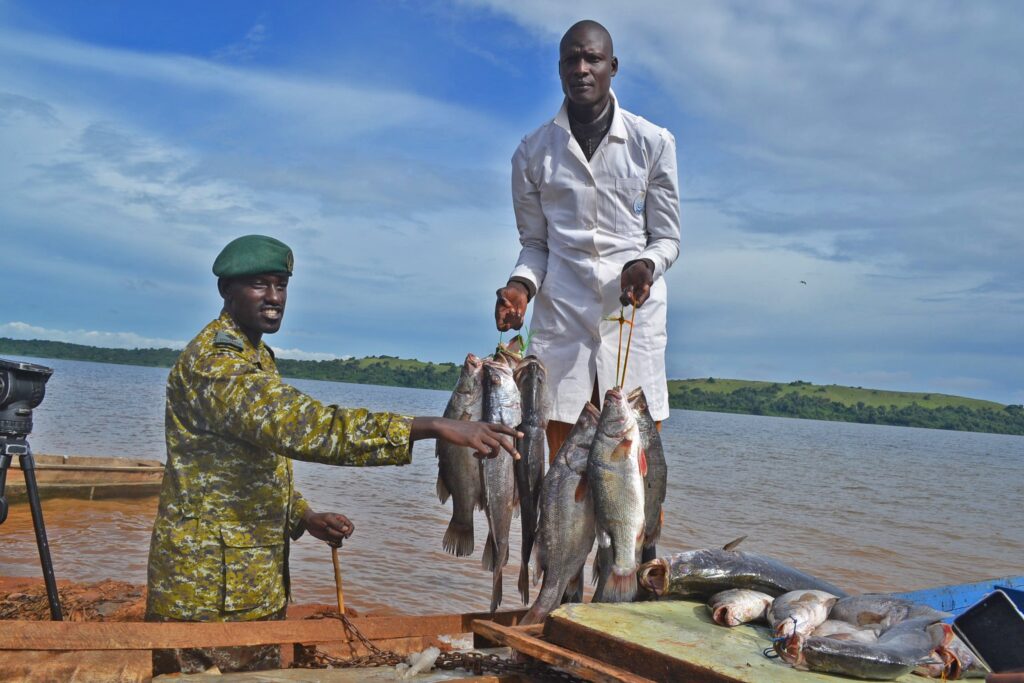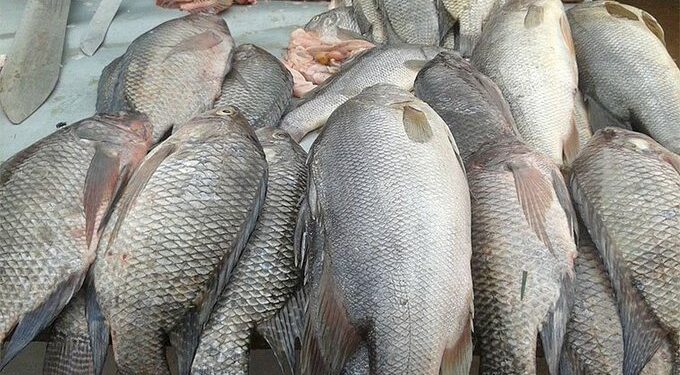By Namaganda Rehema
FIAN Uganda
In the last 15 years, the fisheries sector provided the impetus to the Ugandan economy as the second largest foreign exchange earner, contributing 2.6 percent of Gross Domestic Product (GDP) and 12 percent to agricultural GDP. A major source of the country’s rich cuisine, it also provides a source of livelihood to the communities that live on river banks and landing sites and islands across various lakes in Uganda.
In February 2023, President Museveni assented to the Fisheries & Aqua-culture Act 2022, whose objective is to reform the law relating to the management of fisheries, fisheries products and aquaculture in Uganda. Certainly, this is great progress in the sector and in our attempt as a country to manage fisheries better.
A number of provisions in this new law seem to give hope for a better fisheries sector. Among others Section 26 of the Act establishes the Fisheries co-management structures, which are established right from the grassroots to the national and regional levels. They range from landing site fisheries management committee, sub-county fisheries management committee, district fisheries management committee, lake wide fisheries management committees, national fisheries management committees; and regional fisheries management committees.
But beyond the provisions of the law couched in technical prose, how does this Fisheries & Aqua-culture Act deal with ‘bread and butter’ amongst people who earn a living and entirely depend on fisheries? Does the Act address the human rights concerns of the communities who have borne the brunt of egregious abuses at the hands of the UPDF Fisheries Protection Unit (FPU) since the year 2017?
Section 13 of the Act establishes a Fisheries Monitoring, Control and Surveillance Unit within the directorate and it has powers of search and arrest, training, discipline and the use of firearms. Is it any different or is it cut from the same cloth as the Fisheries Protection Unit? It might seem then that the contentious issue in regard to the deployment of military to enforce fishing restrictions on lakes and rivers is clothed in ambiguity. This section doesn’t offer clarity about government’s commitment to eject the UPDF Fisheries Protection unit from its enforcement role, which has left despair within the fishing communities.

Before the UPDF Fisheries Protection Unit began patrolling the lakes, it is said that fish stocks drastically reduced as a result of immature fishing. The National Fisheries Resources Research Institute report on the 2018 hydro-acoustic survey also concluded that the increase in fish size in Lake Victoria “may possibly be attributed to the current effort to combat illegality using the military”. Whereas that could be true, and local fishing communities must practice responsible fishing, it is important to note that such interventions have other disastrous and undesirable effects, and there is need to use the Human Rights lenses in regulating fisheries in the country.
Earlier, in December 2019, the tenth Parliament passed a motion heeding the clarion call of the fishing communities to expel the army from its enforcement duties as a result of the abuses that the fishing community across the islands on Lake Victoria and on the shores of Lake Albert, Lake George and Edward had been subjected to. As FIAN Uganda together with other CSOs in the sector, we have appeared before Members of Parliament from fishing communities and implored them to expel the army from lakes and rivers as a result of its gross human rights record.
Section 32 of the Act introduces the requirement for licences and permits for any person who engages in any fisheries and aquaculture activities. It also establishes the role of the Chief Fisheries Officer who may upon the payment of a fee by an applicant, issue a licence or permit. This section gives the Chief Fisheries Officer immense powers to dispense his duties without any checks and unilaterally decide the fate of those seeking licences and permits to undertake fisheries and aquaculture activities.
It is not clear yet how much fees one is required to pay but there are fears that the licence and permit dues may be too costly for the impoverished fishing communities to afford. There are also fears that cartels may use underhand methods to grease the palms of licensing officials to deny licences and permits to communities from engaging in this lucrative sector.
Section 33 clause 4 reads, “Where the Chief Fisheries Officer refuses to issue a licence, he or she shall, within thirty days from the date of the application, inform the applicant, in writing, giving reasons for the refusal.” The clause does not explicitly state the grounds or circumstances under which the Chief Fisheries Officer might justify rejection of one’s application for a licence or permit.

Section 33 clause 6 of the Act provides that, “A person who is aggrieved by the refusal of the Chief Fisheries Officer to issue a licence may appeal to the Minister within fourteen days from the date of communication of the refusal.” This clause creates a layer of bureaucratic red-tape, which infringes on the rights of those denied a licence or permit to manifestly seek justice and appeal against the decision of the Chief Fisheries Officer.
The Act in section 34, section 36, section 37 and section 39 introduces the fishing vessel licence, fishing transport licence, fishmonger licence, fish movement permit respectively. These provisions introduce numerous licensing fees and permits that could be too exorbitant for the fishing communities many of whom live below the poverty line and earn less than a dollar and a half a day. Moreover, section 46 of the Act provides that a licence issued under this Act ‘shall be valid for a calendar year, which implies cost for renewal on an annual basis.
Section 93 to 114 of the Act spells out various offences and penalties that court may prescribe. For instance, section 96 lists prohibited fishing methods and fishinggear. Section 96 clause (1)(a) specifically reads, ‘A person commits an offence who uses any explosive, fire-arm, any device capable of producing an electric current, poison; including poison made from a natural substance or other noxious substance for killing, stunning, disabling or catching fish is is liable, on conviction, to imprisonment not exceeding eight years without the option of a fine.’
Section 97 provides that, ‘A person who in clause 1 (a) in fishing waters, captures or kills any fish which is undersize; or 1 (b) buys, sells, exposes for sale or is in possession of any undersize fish taken from any fishing waters, commits an offence and is liable, on conviction, to a fine not exceeding one thousand currency points or to imprisonment not exceeding three years, or both.’ Each currency point is equivalent to 20,000 Uganda Shillings, therefore, one thousand currency points is equivalent to 20,000,000 Uganda shillings.
Overall, the fish sector and by implication, the people that depend on the fisheries resources, have for a long time been facing specific sticky issues such as the drastic effects of climate change, pollution, the invasive species of Nile Perch that continues to deplete the smaller species, immature fishing and abject poverty. Laws governing fisheries should therefore aim at keeping the resource for the people but not the resource against the people.


